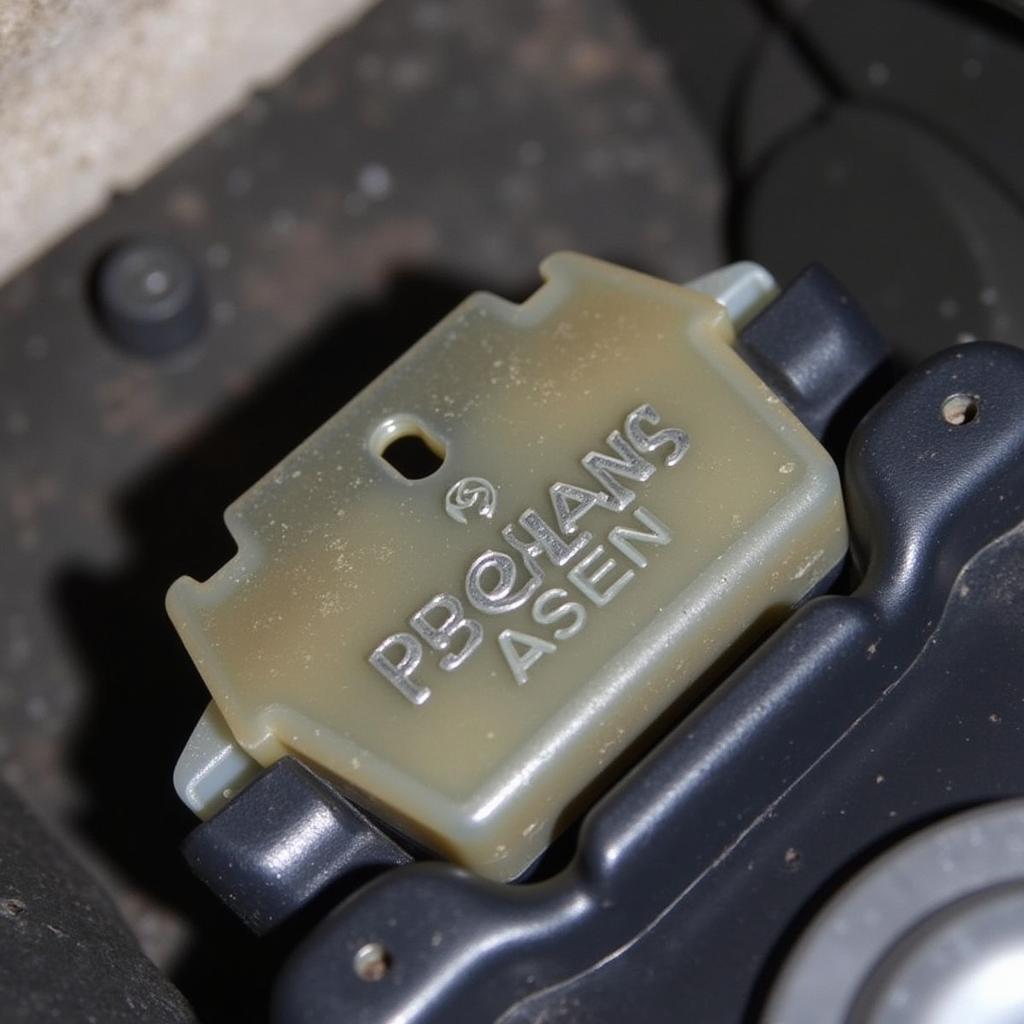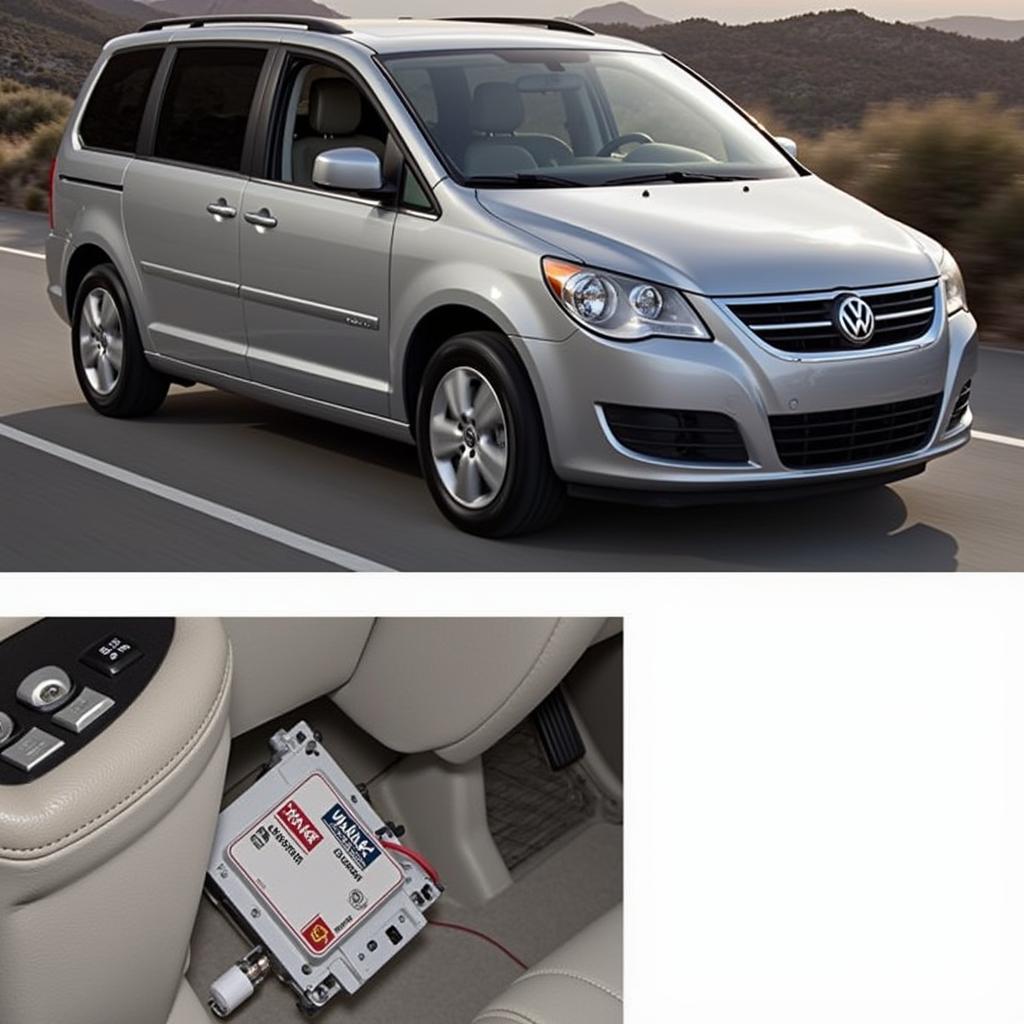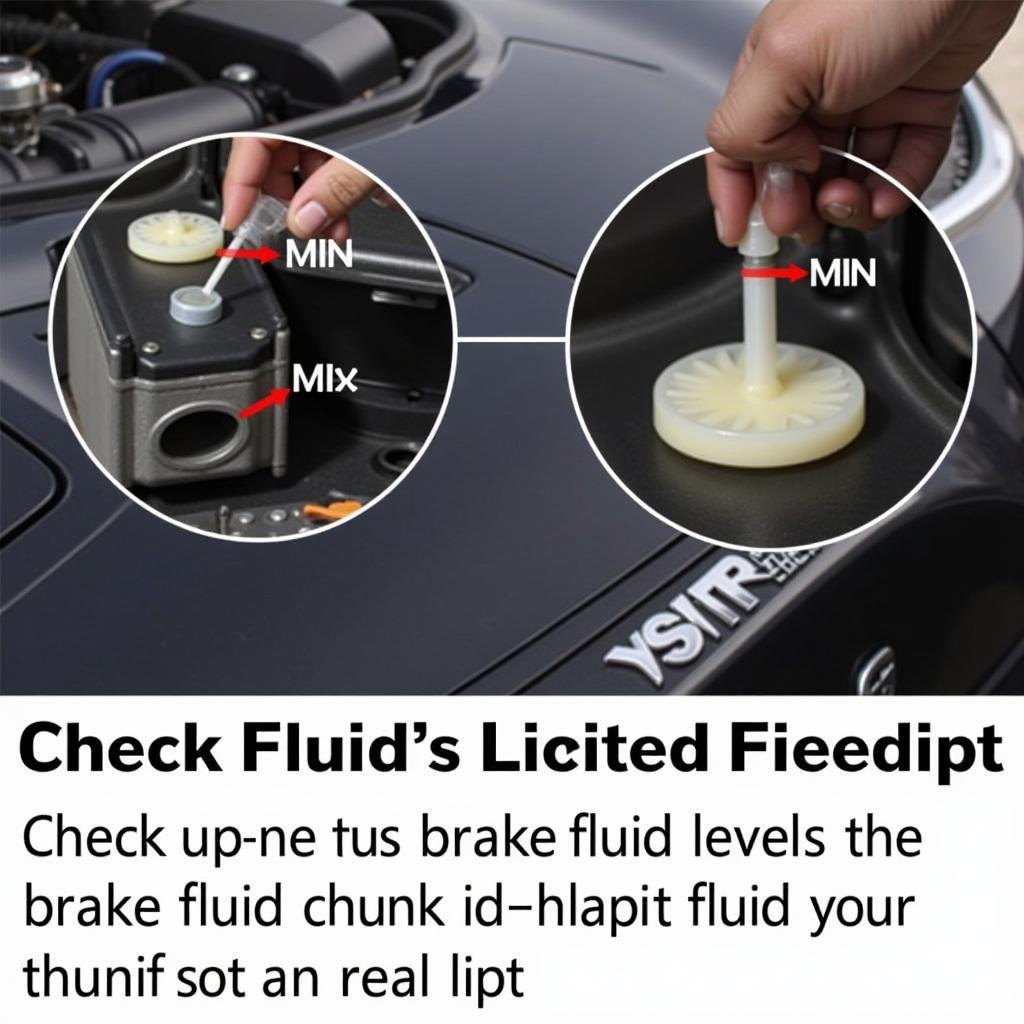The brake warning light on your dashboard is designed to grab your attention. For owners of a 2009 VW Routan, this warning light can be especially concerning. This article will delve into the common causes of the 2009 VW Routan brake warning light and provide guidance on how to troubleshoot the problem.
Understanding Your 2009 VW Routan’s Brake System
The braking system in your 2009 VW Routan is a complex network of components working together to ensure your safety on the road.
- Hydraulic System: This system uses brake fluid to transmit force from the brake pedal to the wheels, enabling the vehicle to slow down or stop.
- Electronic Stability Control (ESC): This system helps maintain vehicle stability during cornering or slippery conditions.
Common Causes of the 2009 VW Routan Brake Warning Light
Several factors can trigger the brake warning light in your 2009 VW Routan:
1. Low Brake Fluid Level
Why it Matters: Brake fluid is essential for transmitting force within the hydraulic system. Low brake fluid levels can significantly compromise braking performance.
What to Do: Check the brake fluid level in the reservoir under the hood. If it’s low, add the recommended brake fluid type for your 2009 Routan (refer to your owner’s manual).
Important Note: Low brake fluid often indicates a leak in the system. Have your braking system inspected by a qualified mechanic promptly.
2. Worn Brake Pads
Why it Matters: Brake pads wear down over time due to friction. Thin brake pads can cause the brake warning light to illuminate, signaling the need for replacement.
What to Do: Visually inspect your brake pads. If you see less than ¼ inch of friction material remaining, it’s time for a replacement.
Expert Insight: “Ignoring worn brake pads is like driving with worn tires – it’s a safety risk you shouldn’t take,” cautions John Miller, a certified automotive technician with over 20 years of experience.
3. Faulty Brake Pad Sensor
Why it Matters: Some 2009 VW Routan models are equipped with brake pad wear sensors that trigger the warning light when the pads reach a certain wear level.
What to Do: If your brake pads appear to be in good condition but the warning light persists, a faulty brake pad sensor could be the culprit. Consult a mechanic to diagnose and replace the sensor if necessary.
 2009 VW Routan Brake Pad Sensor
2009 VW Routan Brake Pad Sensor
4. ABS Issue
Why it Matters: A problem with the Anti-lock Braking System (ABS) can trigger the brake warning light.
What to Do: If you suspect an ABS issue, it’s best to have your vehicle diagnosed by a mechanic with the appropriate diagnostic tools.
Expert Tip: “A flashing ABS light, often accompanied by the brake warning light, usually points towards a more serious ABS issue that requires immediate attention,” advises Sarah Chen, an automotive electronics specialist.
 2009 VW Routan ABS Control Module
2009 VW Routan ABS Control Module
5. Brake Fluid Leak
Why it Matters: A leak in the brake lines, calipers, or other brake system components can lead to a dangerous loss of brake fluid and hydraulic pressure.
What to Do: If you notice fluid leaking near the wheels or a significant drop in brake fluid level, seek immediate attention from a qualified mechanic.
Troubleshooting the Brake Warning Light
Step 1: Check the Brake Fluid Level: As a first step, always check the brake fluid level in the reservoir.
Step 2: Inspect the Brake Pads: Visually examine the brake pads through the wheel spokes. Look for signs of wear.
Step 3: Consider Recent Work: If you’ve recently had work done on your brakes, ensure all connections are secure and no components were accidentally damaged.
Step 4: Consult a Mechanic: If you can’t pinpoint the cause of the brake warning light, don’t hesitate to seek professional help.
Conclusion
Addressing the brake warning light in your 2009 VW Routan is not just a matter of maintenance, it’s a matter of safety. By understanding the potential causes and taking prompt action, you can ensure your vehicle’s braking system remains in optimal condition, providing you with peace of mind on the road.

